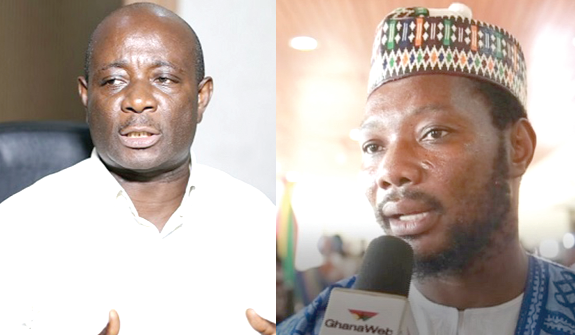
Political parties share varying views on state funding
Political parties are the vehicles through which the ideals of multi-party democracy can be achieved.
Unfortunately, some of the political parties in the country exist merely as “election machines” and become largely inactive during inter-election periods.
In the recent past, there have been proposals for state funding of political parties to reinvigorate political parties to enable them to function effectively and produce capable leaders who can effectively tackle the development challenges of the country.
The proposal has, however, not been implemented. There is a perception that political parties appropriate public resources to fund their political activities since the sources of their funding are unknown and undisclosed.
Political parties also tend to raise resources through all means – fair or foul – for their electioneering campaign and do all they can to recoup such resources after elections, thereby depleting the nation’s coffers.
Varying views
A number of political parties that spoke with the Daily Graphic in separate interviews on the subject of state funding of political parties have expressed varying views on the issue.
APC
The Founder and Leader of the All People’s Congress (APC), Mr Hassan Ayariga, posited that if political parties were to be funded by the state, it would open the floodgate for anyone to get up and form a political party.
For him, the country was at a point in its development where it was saddled with a number of needs that required the mobilisation of resources to address them and not the needless issue of funding political parties.
“Why should the state’s money be used to fund someone who wants to become a President? If you want to become a President, you should be prepared to fund yourself,” he maintained.
UPP
However, Mr Akwasi Addai Odike, the Leader and Founder of the United People’s Party (UPP) was of the view that it was imperative for the state to partially fund political parties’ activities, including equal access to the media.
Under a state funding, he opined that all persons from the various political parties who wanted to contest for the positions of Members of Parliament or President ought to be brought together on the same campaign platform under the sponsorship of the state to sell their messages to the people.
With such an opportunity to engage with the people, he said, personal or group campaigns by the political parties ought to be banned.
That, he said, would sanitise the political landscape and rid it of corruption, stressing that excessive spending by political parties only served to entrench corruption, “especially after a party wIns power”.
UFP
The flag bearer of the United Front Party (UFP) in the 2016 election, Mr Agyenim Boateng, popularly known as ‘Gyataba,’ is convinced that state funding of political parties is a step in the right direction because when a political party wins an election, it does so to serve the state.
He is, therefore, of the view that with the availability of adequate resources, it should not be difficult for the state to do that.
That way, he opined, the state would be able to regulate the activities of political parties and that would go a long way to strengthen the country’s system of contemporary politics.
CPP
But the Director of Elections of the Convention People’s Party (CPP), Mr James Kwabena Bomfeh, said the timing for the funding of political parties was problematic adding that regardless of that, it was an issue that had to be interrogated in the light of the political parties’ law of 2000, ACT 524.
He was of the view that political parties campaigned on promises only to renege on those promises when they won power.
Already, he pointed out, the Ghanaian electorate was losing faith in the political class because of failed promises and so asking them to fund political parties would not sit well with them.
PNC
The Chairman of the People’s National Convention (PNC), Mr Bernard Mornah, recounted that in 2003, the party presented a paper on state funding of political parties, explaining that state funding of political parties was not the same as funding of political campaigns.
He said with the Constitution of the country making Ghana a multi-party state, there was the need to ensure that all the political parties were on equal footing but that had not been the case, especially for political parties that had never been in power.
He, was, therefore, of the view that state funding of political parties would bring the parties closer to the people and also help eradicate the influence of money from the country’s body politic.
PPP
For the Progressive People’s Party (PPP), its Communications Director, Mr Paa Kow Ackon, said on the website of the Electoral Commission (EC), a total of 24 political parties were listed as being in Ghana.
For him, it was important to first sanitise the system and know whether political parties were seriously doing business and in good standing before considering the issue of funding them.
He said the funding of political parties was important in view of the law’s position that no political party was allowed to seek funding from external sources.
But that law, he explained, did not apply to parties that had been in power since they had an advantage to leverage their position in power to seek opportunities from external sources.
Therefore, in his view, state funding of political parties would create a level playing field but the political parties’ law ought to be amended first.
NDP
The General Secretary of the National Democratic Party (NDP), Mr Mohammed Frimpong, said it was an agreed position of all political parties that it was a necessary requirement for the state to provide funding for political parties.
That, he said, would help political activities to be on an even keel for all political parties to a large extent.
